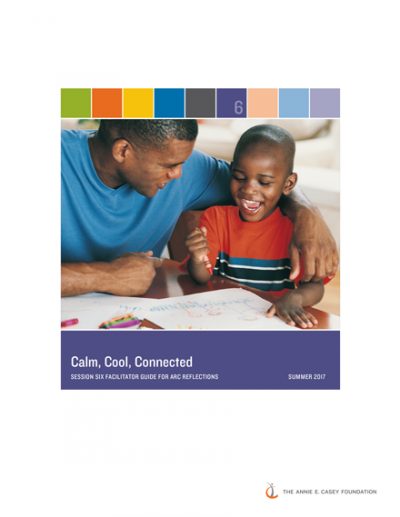Missing Links
Kids who did not get adequate regulation support may not have developed self-regulation skills and may have trouble understanding, communicating and managing their feelings

The Casey Foundation and the Justice Resource Institute developed ARC Reflections, a training curriculum to develop foster parents and caregivers’ understanding of traumatic stress, increase their own emotional regulation and provide tools to support their parenting skills. Session six participants will be taught that their ability to remain calm, cool and ultimately connected is key to supporting a child or teen in learning to self-regulate (which includes being able to manage or control one’s thoughts, emotions and energy). The first step to supporting self-regulation is to provide a foundation and the second step is to support in-the-moment regulation.
Every session includes a check-in to increase awareness and engagement of participants; a facilitator checklist of session materials; practice activities and take home log for participants; a representative case study to follow throughout the sessions; and reflective questions for participant growth and understanding.
One of the most important ways to address trauma-based behavior is to get in front of it — to become purposeful and active in planning a response. For children and teens affected by trauma, particular attention is paid to two kinds of needs: 1) behaviors designed to manage danger (survival behaviors) and 2) behaviors designed to get needs met. The more we understand what is driving a behavior, the better we are able to respond to it.
We hope you'll find value in this report. We’d love to get a little information from you, which we'll use to notify you about relevant new resources.